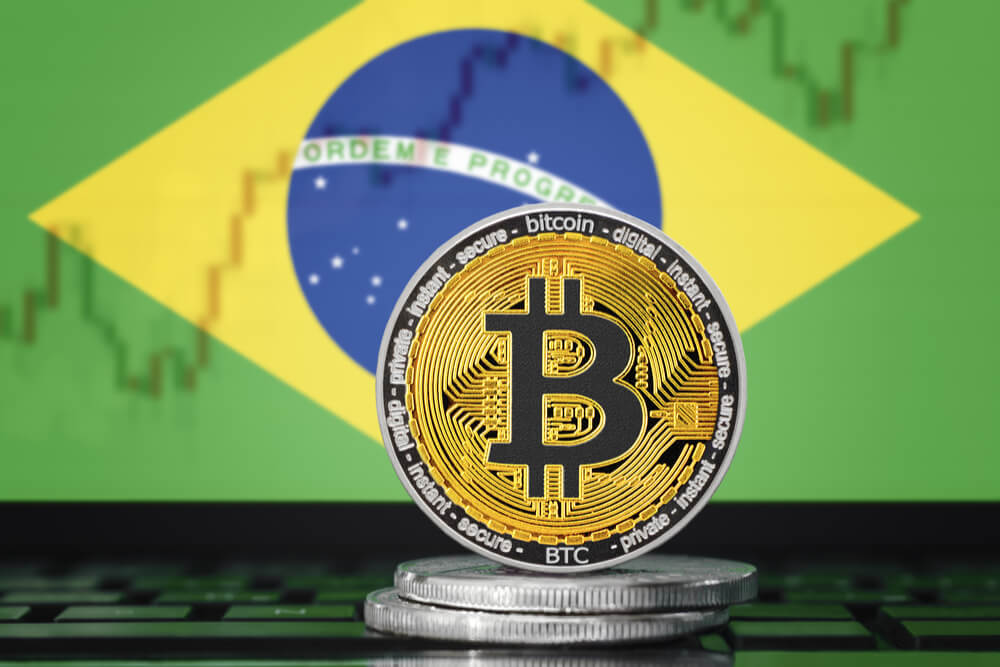Brazil Sees First Public Company Embrace Bitcoin Treasury Strategy
17.05.2025 12:00 2 min. read Alexander Stefanov
Brazil has just joined the list of countries where public companies are embracing Bitcoin as a long-term financial strategy.
Fintech firm Méliuz made headlines after acquiring over 274 BTC, becoming the first publicly traded company in Brazil to officially adopt a Bitcoin treasury model.
The company’s $28.4 million investment, backed by shareholder approval, reflects a growing institutional appetite for Bitcoin in emerging markets. Chairman Israel Salmen confirmed the move in a public statement, positioning Méliuz alongside global pioneers like MicroStrategy and Japan’s Metaplanet.
Since entering the crypto treasury space in early March, Méliuz has grown its holdings to more than 320 BTC, now worth over $33 million. The firm paid an average of $103,604 per coin and says its strategy centers on long-term value creation for shareholders through disciplined accumulation using cash flow and capital market tools.
The market has responded. Méliuz stock has surged by more than 100% since its initial Bitcoin purchase, echoing the trend seen with other early adopters of corporate crypto strategies.
This development came as U.S.-based DayDayCook unveiled its own treasury plans, beginning with a 100 BTC purchase and aiming for 5,000 BTC over the next three years. Meanwhile, other companies have begun broadening their crypto reserves beyond Bitcoin, adding assets like Ethereum and Solana.
With regulations maturing and institutional confidence growing, Méliuz’s bold move is another sign that Bitcoin is solidifying its role as a strategic reserve asset far beyond the borders of the United States.
-
1
Bitcoin Shouldn’t Be Taxed, Says Fund Manager
07.07.2025 9:00 2 min. read -
2
Bitcoin Enters new Discovery Phase as Profit-Taking Metrics rise and outflows dominate
06.07.2025 8:00 2 min. read -
3
U.S. Lawmakers Target El Salvador With Crypto Sanctions Plan
10.07.2025 15:00 2 min. read -
4
Strategy’s $60 Billion Bitcoin Portfolio Faces Mounting Risks, CryptoQuant Warns
10.07.2025 16:36 3 min. read -
5
Crypto Market Slips on Senate Bill and Altcoin Leverage Risk
23.07.2025 18:51 2 min. read
Biggest Bitcoin Miner Will Raise $850M To Buy Bitcoin
MARA Holdings, Inc. (NASDAQ: MARA), a leading digital infrastructure and Bitcoin mining firm, announced plans to raise $850 million through a private offering of 0.00% convertible senior notes due 2032.
Crypto Market Slips on Senate Bill and Altcoin Leverage Risk
The crypto market dropped 1.82% over the last 24 hours, ending a multi-day streak of gains.
Elon Musk’s SpaceX Moves $150M in Bitcoin
SpaceX has moved 1,308 BTC—worth roughly $150 million—to a new wallet address, marking its first on-chain activity in more than three years.
Here’s When the Bitcoin Cycle May Peak, Based on Past bull Markets
According to a new chart shared by Bitcoin Magazine Pro, the current Bitcoin market cycle may be entering its final stretch—with fewer than 100 days remaining before a potential market top.
-
1
Bitcoin Shouldn’t Be Taxed, Says Fund Manager
07.07.2025 9:00 2 min. read -
2
Bitcoin Enters new Discovery Phase as Profit-Taking Metrics rise and outflows dominate
06.07.2025 8:00 2 min. read -
3
U.S. Lawmakers Target El Salvador With Crypto Sanctions Plan
10.07.2025 15:00 2 min. read -
4
Strategy’s $60 Billion Bitcoin Portfolio Faces Mounting Risks, CryptoQuant Warns
10.07.2025 16:36 3 min. read -
5
Crypto Market Slips on Senate Bill and Altcoin Leverage Risk
23.07.2025 18:51 2 min. read


